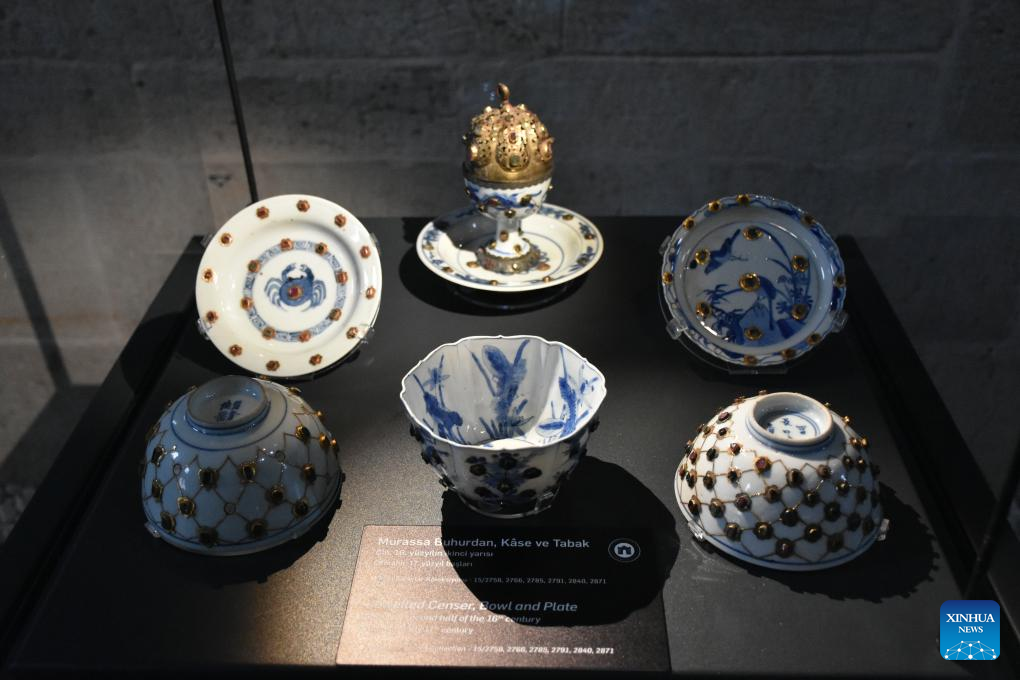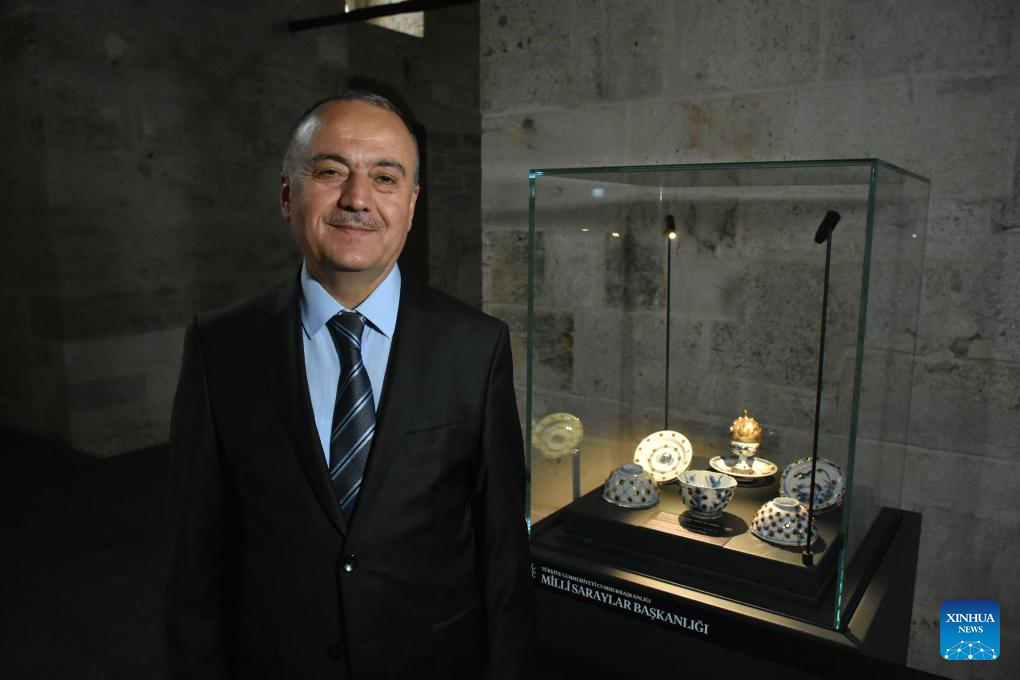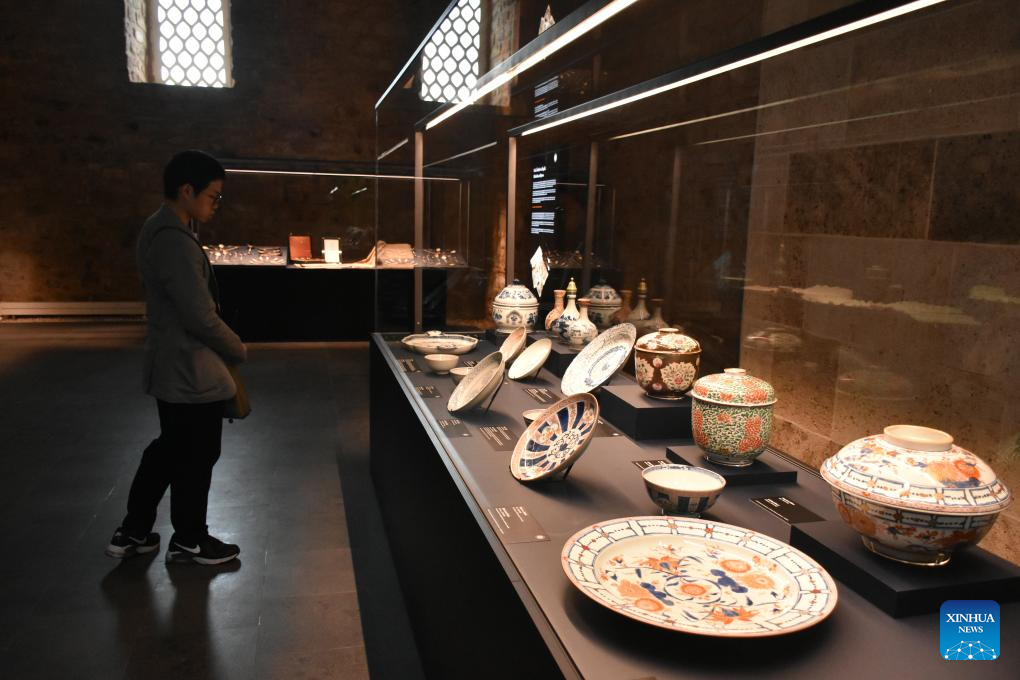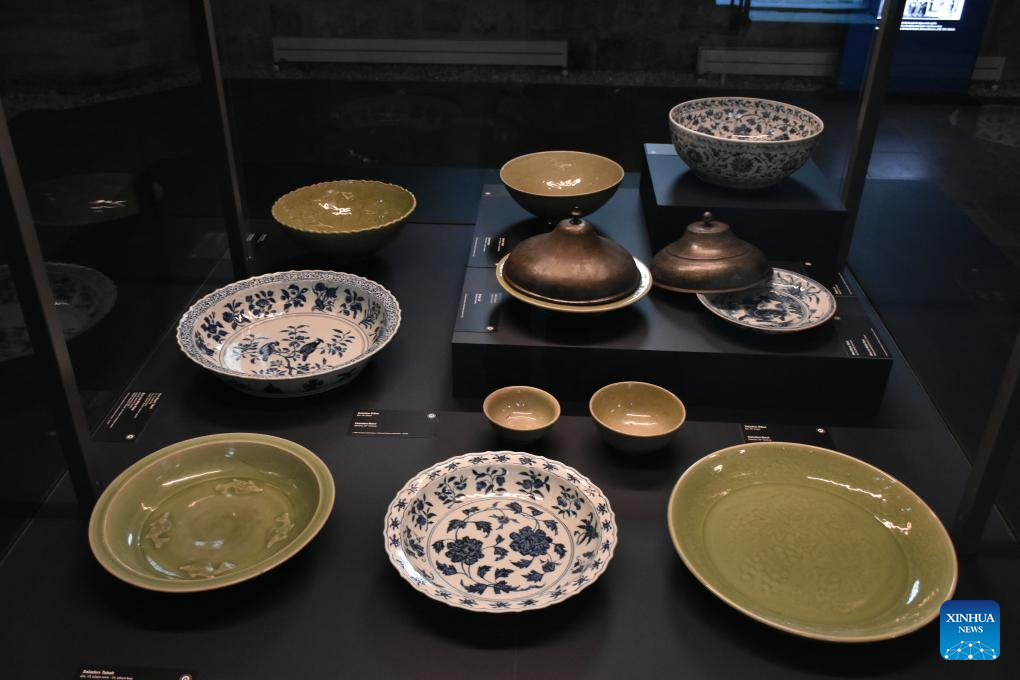
This photo taken on April 29, 2024 shows some exhibits during an exhibition of Chinese porcelain at the Topkapi Palace Museum in Istanbul, Türkiye. Topkapi Palace Museum in Türkiye's Istanbul, once the residence of the Ottoman sultans, is now displaying additional pieces from its extensive collection of Chinese porcelain following a monumental restoration process. (Photo by Safar Rajabov/Xinhua)
ISTANBUL, May 3 (Xinhua) -- Topkapi Palace Museum in Türkiye's Istanbul, once the residence of the Ottoman sultans, is now displaying additional pieces from its extensive collection of Chinese porcelain following a monumental restoration process.
The three-year restoration prioritized three of the palace's eight kitchens, especially those originally designated for the sultans and their mothers, as well as for receptions of foreign ambassadors.
Each showcase set up in these kitchens displays exquisite banquet tables adorned with rare pieces of porcelain transported from China between the 13th and 19th centuries.
In total, Topkapi Palace houses approximately 12,000 Chinese porcelain pieces, including those exclusively crafted for the sultans.
Ilhan Kocaman, head of the Topkapi Palace Department of the Directorate of National Palaces, revealed that initially, the museum displayed only 120 Chinese porcelain pieces due to space constraints. However, thanks to the renovation, this number has risen to 400.
"The significance of Chinese porcelain in Ottoman cuisine cannot be underestimated," Kocaman told Xinhua while introducing the newly designed kitchen halls.
He emphasized the sultans' deep appreciation for the design and magnificence of their tables, often adorned with stunning pieces of Chinese porcelain art.
"Among these splendid pieces are those with inscriptions of Islamic prayers and praises, which delicately grace the surface of Chinese porcelains," Kocaman added.
The collection of Chinese porcelains at Topkapi Palace Museum draws significant attention from Turks and foreign tourists. Gezsen Istanbul, an online tourism platform, remarked, "It is a truly mesmerizing experience to wander through such a collection of jeweled pieces."
The Directorate of National Palaces said in a post on social media platform X that the Topkapi Palace has one of the largest Chinese porcelain collections in the world outside China.
Its collection of celadon ware comprises 1,354 pieces from the Yuan and Ming dynasties.
The officials had long sought a solution to the challenge of exhibiting more Chinese porcelains. "Finally, the good news arrived," Kocaman said, referring to the forthcoming opening of a giant porcelain museum in Istanbul at the end of this year.
"This eagerly awaited museum will showcase around 3,000 pieces from the extensive collection of Chinese porcelain housed within Topkapi Palace," he noted. ■

Ilhan Kocaman, head of the Topkapi Palace Department of the Directorate of National Palaces, is pictured in front of some exhibits during an exhibition of Chinese porcelain at the Topkapi Palace Museum in Istanbul, Türkiye, April 29, 2024. Topkapi Palace Museum in Türkiye's Istanbul, once the residence of the Ottoman sultans, is now displaying additional pieces from its extensive collection of Chinese porcelain following a monumental restoration process. (Photo by Safar Rajabov/Xinhua)

A visitor views some exhibits during an exhibition of Chinese porcelain at the Topkapi Palace Museum in Istanbul, Türkiye, April 29, 2024. Topkapi Palace Museum in Türkiye's Istanbul, once the residence of the Ottoman sultans, is now displaying additional pieces from its extensive collection of Chinese porcelain following a monumental restoration process. (Photo by Safar Rajabov/Xinhua)

This photo taken on April 29, 2024 shows some exhibits during an exhibition of Chinese porcelain at the Topkapi Palace Museum in Istanbul, Türkiye. Topkapi Palace Museum in Türkiye's Istanbul, once the residence of the Ottoman sultans, is now displaying additional pieces from its extensive collection of Chinese porcelain following a monumental restoration process. (Photo by Safar Rajabov/Xinhua)



